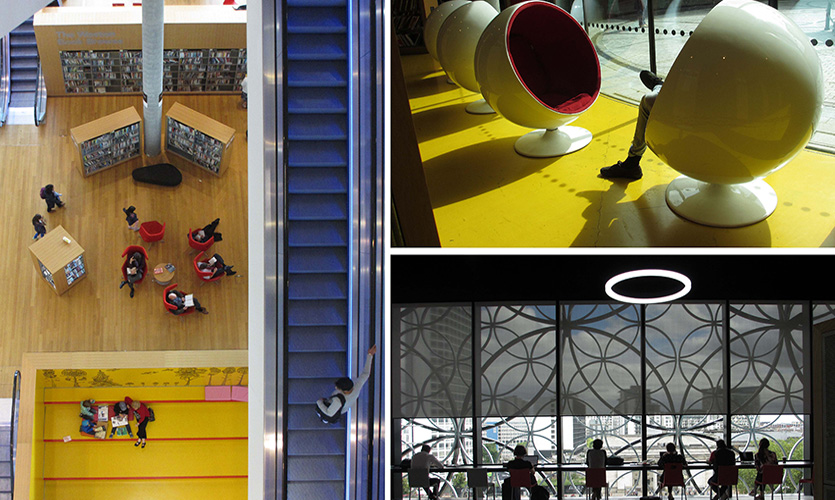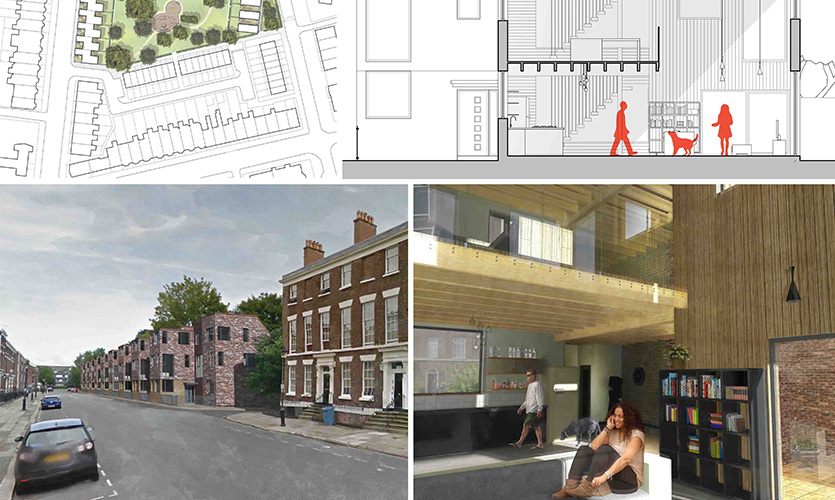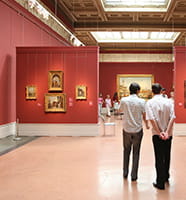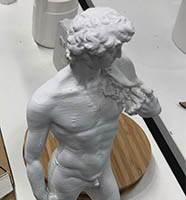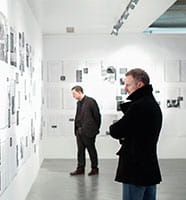City Lab
Exploring urban possibilities through art, culture, health, housing, commerce and design research.
The Lab asks how we can enhance the urban experience through socially engaged creative practices.
Lab Leaders: Dominic Wilkinson and Simon Piasecki
City Lab aims to develop research that will:
-
build new forms of citizenship based on creativity and social responsibility;
-
help us to re-imagine our current uses of architecture, art, design, fashion and urbanism within and across the fields of culture, health, housing and commerce within the context of the city;
-
develop new forms of hybrid and transdisciplinary practices that are capable of having positive, real world and sustainable impact on the social, political, economic and cultural infrastructure of the city.
Key principles
The Lab is centred on three key principles:
- Internationalisation
- Interdisciplinarity
- Impact
These are achieved by working across a range of socially oriented projects and practices that call for social change within the city context. Respecting and examining existing disciplinary specificities, working with more comprehensive, expanded constituencies, reaching and building new audiences and developing models of city-based architecture, art, fashion and design practices.
Research columns
City Lab combines two columns of research:
The Built Environment
- Architecture
- City Planning
- Policy
- Urban Design
- History
The Lived Environment
- Communities
- Identity and Belonging
- Lived Experience
- Health
- Applied Practice
- History
- Urban Arts
Research activities
City Lab currently has five key areas of research activity:
Hilbre Island
Led by Dominic Wilkinson, the Hilbre Island project connects to City Lab both because of its historic importance to the port, its architecture and its development as a centre for artists.
Cities of Art
A cluster for researchers interested in public, sculptural, community, visual and performing arts that relate to urban or city contexts.
Healthy Cities
A cluster for researchers interested in contexts of urban wellbeing, participatory works, recovery, aid and health.
Port Cities
A collaborative project open to all members. This will intend to form a symposium in early 2024 connecting to other 2nd tier port cities and extending the conversations of the members’ projects.
Mapping and Meaning
A cluster for researchers interested in contexts of belonging, identity and migration in and through cities.
City Lab in context
All the research fields within City Lab expose the impact and influence of architecture, art, fashion and design within the context of our everyday environment. City Lab’s research projects embody how the production of original knowledge, through practice and critical theory, can lead to real, impactful and sustainable change within our contemporary culture.
Rethinking and reimagining the city through constituent practices of sustainability, material constructions and applications of technology contributes to the enhancement of our local, national and global environments.
The research themes of City Lab simultaneously occupy the cutting edge of their disciplinary specificities whilst remaining active within the real-world context of the city. City Lab supports research and practice that embraces or focuses on those elements that are undiscovered or operate in the realms of periphery, such as design for well-being and constituent practices that enable the reimagination of marginal cultures within the urban environment.
City Lab will seek to innovate and promote enterprise-based teaching and learning practices within its research context via the development of a student-led and entrepreneurial pedagogy.
The remediation of architecture art, fashion and design practices within City Lab leads to the development of culturally significant practices whereby the communicative powers of art and design objects and projects allude to the transformative nature of products and environments. This research is evident in the projects of spatial design through themes of the vernacular and sustainability.
Current Projects
London Festival of Architecture: Artist Housing – an evening of film screenings and conversation
Artist-Led Housing: Programme of Public Events
No Going Back
Rethinking ecology as an agent for urban economy: A case study on Meles Stream Delta
Changing the identity of a place by changing street names: The process of renaming the streets of Üsküdar between 1927-1934
Events
Past events
Upcoming events
Publications
Artist-Led Housing: Histories, Residencies, Spaces
Sustainable Planning Strategies for a Port City
Changing the identity of a place by changing street names: The process of renaming the streets of Üsküdar between 1927-1934
Exploring students’ experience of urban space
Putting the ‘i’ in icon: An autophotographic study of iconicity
Smart Libraries and Library 3.0
People
Loading staff profiles…
Project archive
L'Internationale
The Uses of Art: The Legacy of 1848 and 1989
Museum of Arte Útil
Really Useful Knowledge
Confessions of the Imperfect, 1848-1989-Today
Glossary of Common Knowledge: Constituencies
The Arte Útil Summit 2016
Asociación de Arte Útil
Conference: Working with Constituents
The Uses of Art: Final Exhibition
Health and wellbeing projects
Health and wellbeing projects








